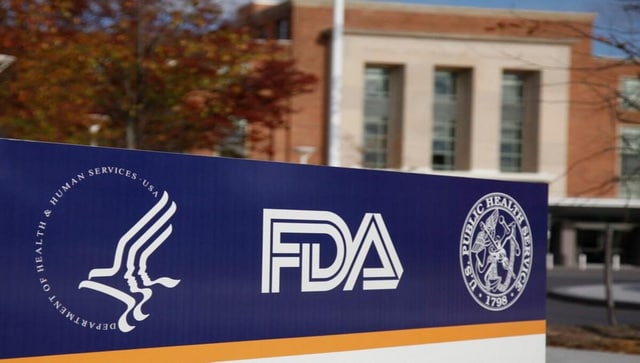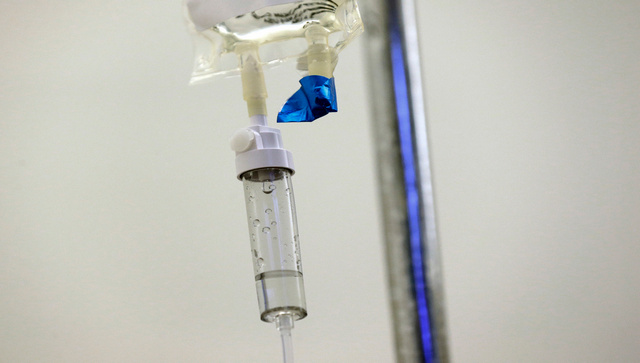The United States is currently facing a shortage of cancer drugs. So much so that some treatment centres have been forced to switch medication for patients and even delay care in some instances. But why is this happening? And what’s the fallout? Let’s take a closer look: What happened? According to NBC, the United States in recent months has witnessed a shortage of over a dozen drugs. These include cisplatin and carboplatin – which treat several varieties of cancer including testicular, gynecologic, breast, bladder, head and neck as well as non-small-cell lung cancers. Cisplatin and drugs like it are used to treat 10 to 20 per cent of all cancer patients, as per NBC. A survey last month by the National Comprehensive Cancer found that nearly all the centers faced a shortage of carboplatin and cisplatin. Some are no longer able to treat patients receiving carboplatin at the intended dose or schedule. A cancer patient from California told Financial Times his insurance company denied access to cisplatin in April as a result of the shortage. “Cisplatin is now under protocol reserved for curable cancers. And since mine is not curable, it’s not something I’ve qualified for at the moment,” Michael Griffith, a 51-year-old father of three, said. CNN quoted the University of Utah Drug Information Service as saying that around two dozen chemo drugs were hard to get at the end of March.
Ongoing and active shortages were the highest since 2014.
Dr Robert Carlson, National Comprehensive Cancer CEO, was quoted as saying by CNN, “This is an unacceptable situation. We are hearing from oncologists and pharmacists across the country who have to scramble to find appropriate alternatives for treating their patients with cancer right now.” Of the 27 cancer centers that responded to the network’s survey, 25 reported a shortage of carboplatin. Among the cancer centers with shortages of carboplatin, more than a third said they were unable to treat all patients according to the intended dose and schedule. Nineteen hospitals also reported cisplatin shortages, but all said they were able to maintain the treatments for existing patients. “We were relieved by survey results that show patients are still able to get life-saving care, but it comes at a burden to our overtaxed medical facilities,” Carlson added. “We need to work together to improve the current situation and prevent it from happening again in the future.” Meanwhile, switching out cancer drugs has real-world implications. Jennifer Rubatt, an oncology specialist in Denver, Colorado, told Financial Times, “In late April and May for newly diagnosed ovarian cancer patients I had to make drug substitutions because we did not have the sort of first-choice drugs available,” said Added Julie Gralow, chief medical officer at the American Society of Clinical Oncology, “The concern there, of course, on the part of patients and their clinicians is: ‘are we sure this [substitute drug] is equally effective? Are we potentially in some way reducing the chance for cure?’ I don’t think we have solid data on that but that is a serious concern.” Why is this happening? The problem started developing earlier this year, said Mike Ganio, who studies drug shortages at the American Society of Health-System Pharmacists. “I think it went from being a shortage to being a really bad shortage really quickly,” he said.
“There’s not a whole lot of room for it to get worse.”
Ganio’s society reported the cisplatin shortage in January and then carboplatin in late March, months after a factory in India that makes both drugs paused production following an inspection that raised quality concerns. Erin Fox, senior pharmacy director at University of Utah Health and an expert on drug shortages, told USA Today the manufacturer Intas Pharmaceuticals provides around half the market share of cisplatin. What’s the fallout? The US Food and Drug Administration has taken some steps to try to ease the chemotherapy shortage. [caption id=“attachment_12712452” align=“alignnone” width=“640”] The FDA is allowing the temporary importation of some foreign-approved versions of cisplatin from factories registered with the FDA. Reuters[/caption] The agency is allowing the temporary importation of some foreign-approved versions of cisplatin from factories registered with the FDA. According to CNBC, the FDA has allowed cisplatin manufacturer Qilu Pharmaceutical permission to export the drug to the United States. Qilu and Canadian drugmaker Apotex will export the drug – which comes in 50-milligram vials – to the United States and handle its distribution, as per NBC. The outlet quoted Eric Tichy, board chair of the End Drug Shortages Alliance, as saying this was a ‘good plan’. Fox told USA Today, “It will hopefully help more patients access product and not have their treatments delayed.” FDA commissioner Dr Robert Califf tweeted, “The public should rest assured that we will continue all efforts within our authority to help the industry that manufactures and distributes these drugs meet all patient needs for the oncology drugs impacted by shortages.” While Ganio said that while that should help, the big factor will be getting the factory in India back up to full production. According to USA Today, the US Food and Drug Administration last week sent Intas a letter allowing it to resume shipping certain drugs including cisplatin and carboplatin. The FDA said Intas will be mandated to hold a third-party review and test its products.
The FDA is allowing the temporary importation of some foreign-approved versions of cisplatin from factories registered with the FDA. Reuters[/caption] The agency is allowing the temporary importation of some foreign-approved versions of cisplatin from factories registered with the FDA. According to CNBC, the FDA has allowed cisplatin manufacturer Qilu Pharmaceutical permission to export the drug to the United States. Qilu and Canadian drugmaker Apotex will export the drug – which comes in 50-milligram vials – to the United States and handle its distribution, as per NBC. The outlet quoted Eric Tichy, board chair of the End Drug Shortages Alliance, as saying this was a ‘good plan’. Fox told USA Today, “It will hopefully help more patients access product and not have their treatments delayed.” FDA commissioner Dr Robert Califf tweeted, “The public should rest assured that we will continue all efforts within our authority to help the industry that manufactures and distributes these drugs meet all patient needs for the oncology drugs impacted by shortages.” While Ganio said that while that should help, the big factor will be getting the factory in India back up to full production. According to USA Today, the US Food and Drug Administration last week sent Intas a letter allowing it to resume shipping certain drugs including cisplatin and carboplatin. The FDA said Intas will be mandated to hold a third-party review and test its products.
Gano also noted that drug supply shortages are a decades-old problem.
“We really need to get at the root causes of these shortages or they’re going to continue happening,” he said. ‘Need to rethink market for generics’ Manufacturing problems, unexpected demand spikes and tight ingredient supplies have all contributed to a growing number of prescription drug shortages in the United States. Many patients with attention deficit/hyperactivity disorder have had a hard time filling prescriptions for Adderall this year, and drugstores ran out of children’s medicines during last winter’s cold-and-flu season. There were 301 active national drug shortages through this year’s first quarter, according to the University of Utah Drug Information Service. “This is a public health crisis. We have never seen a shortage like this one,” Angeles Alvarez Secord, president of the Society of Gynecologic Oncology, told Financial Times. “We need to rethink the entire marketplace for generics, which is where most of the shortages can be found,” Laura Bray, founder of Angels for Change, told the outlet. With inputs from agencies Read all the Latest News , Trending News , Cricket News , Bollywood News , India News and Entertainment News here. Follow us on Facebook , Twitter and Instagram .
)